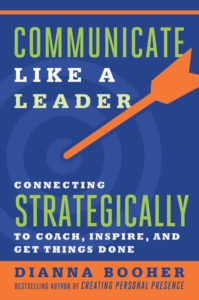


The client doesn’t return your call. The doctor’s office forgets to call with the test results. A colleague never makes the introduction she promised. Your neighbor fails to return the item he borrowed. If it happens once, a gentle reminder works well with most people. But if these procrastinators have made empty promises a habit, then you’ll need to be more proactive in following up to get action.
Here’s how:
If you’re dealing with a prospect who has told you they would make a decision on your proposal by a certain date and you’ve followed up a couple of times—only to find them “unavailable” or otherwise not forthcoming with information—send an email that says basically this:
“Since we’ve not heard from you on the XYZ decision, I’m assuming you’ve decided to go in a different direction. I’m sure you’ve spent considerable time on this decision and made the best choice for all concerned, given your situation, budget, and staffing requirements. Congratulations on coming to a final decision. Thank you for considering us for this work. We wish you success on the project.”
Such a message works wonders to generate a quick response. The scarcity principle is at play because you’re withdrawing attention and saying, “I’m moving on.” If the prospect has NOT made a decision and the project has simply been delayed, they’re often quick to contact you, apologize for keeping you in the dark, and let you know the status and next steps.
Occasionally the problem is miscommunication. Either the other person did not understand clearly that you were expecting something or did not understand the urgency of the action. They offered an action as an “empty gesture”—a “nice to do” someday, with no real intention or commitment. You may have even accepted the offer in like manner—as if their offer were unimportant to you.
To follow up, you’ll need to make it clear that you are sincerely counting on them to do what they said.
Ask yourself how the other person can benefit by doing the favor. Phrase your reminder with that benefit included. For example, to a colleague who has not yet RSVP’d for a dinner event: “I’m hoping you’re going to attend the dinner next week. I haven’t seen the complete RSVP list. But I know we have at least two intriguing guests that I’m eager for you to meet.”
Maybe you’ve asked a colleague for an introduction to a senior executive at another firm, but so far the colleague has not made the introduction. You send a reminder that says something like this:
Troy,
I’m going to be in Austin in a couple of weeks and am planning to call Mark Avery’s office to try to set up a meeting. You mentioned a couple of times that you would call to make an introduction for me, and I really appreciate that. I’m hoping you’ve been able to do that by now. In any case, I just wanted you to know that the Austin trip was on the horizon so I’m going to grab that opportunity. Thanks for whatever you can do in this regard.
Sheryl
Choose simple, clear words in a straightforward sentence. If writing an email or letter, make it warm and personal, not stuffy. If texting, don’t sound like you’re talking to your two-year-old or teen. When you choose your method of communication (face to face, email, text, phone), make sure they will take the request seriously—and remember it. For some people, the mode has much to do with memory, sincerity, and commitment.
Here are some good ice-breakers for follow-ups to those who have failed to get back in touch or do what they say after significant time has passed:
Forget the parental tone. Stay positive. Gotchas do very little to motivate people to action.
Learn more ways to follow up with Communicate Like a Leader: Connecting Strategically to Coach, Inspire, and Get Things Done
